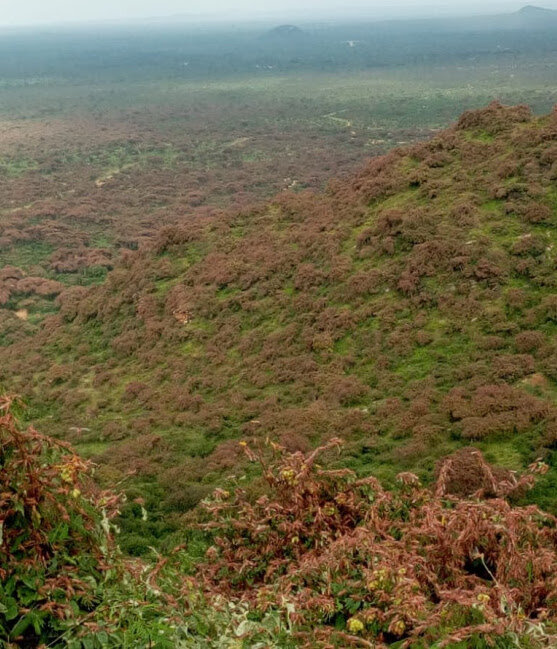A Blog Post by Matthew Cole: Plague
As this month of January is drawing to a close, it marks the (hopefully) final time that I will have to journey to Nairobi to extend my visa. While I still have 2.5 months left before I return to the States, this feels like it will be the first of my “lasts.” This undeniably feels odd and even makes me feel a little uneasy, as after really settling into my groove I will have to upend everything and do it all over again. The other Union fellows and I have been discussing this amongst ourselves, and all agree that we need to cherish what time we do have left in our respective placements. But enough about that.
Our well in Sere Elbolei being flushed. The resulting rainbow only seemed fitting
It’s been a very interesting month here in Wamba, with some incredible highs and lows. On the good side of things, after a string of delays, the drilling of our wells for the year has commenced. Last week, the four TSP Wamba Men (maybe you should trademark that Linda) journeyed to Sere Elbolei, about a 2.5 hour drive from Wamba to observe the first well of the season being drilled. It’s a pretty surreal feeling when you are driving around the bush and all of a sudden you come to a mammoth drill rig nestled in the trees by a seasonal river bank, angrily chipping through the earth below. Unfortunately, about 40 meters down, the well collapsed which required a trip to Nairobi (about 6 hours each way by car) to remedy. Finally, after 5 days of drilling, the well was completed. The last step before installing the pump in the well is to flush it clean of all the dirt and other contaminates that have accrued inside during the process of drilling. To accomplish this, the drill rig sends a tremendous level of pressurized air into the well which quite literally flushes the well until the water runs clean. The process is quite spectacular, as it sends water gushing out of the well in a geyser like fashion, showering the surrounding area in clouds of mist. All throughout the drilling process, members of the local community came through to observe the process, especially the elder men. I laugh as this is no different than how it worked in my neighborhood. If any house in the ‘hood had work being done, there were always the same gentlemen retirees who would come out to “supervise.” In the moment, the 3 year old child in me was so in awe of a big machine at work, that I failed to comprehend the emotion of the moment. Looking back, I realize that for the members of the community who were there to observe, the moment must have been of monumental emotion. Seeing the water explode out of the ground, like a ray of hope sent from below, showed this community that their lives would be just a bit easier.
See those brownish/reddish? Locusts. All of them.
As I have discussed before, I was very fortunate to come to Samburu the year that I did, as I have been able to witness so many incredible happenings here, mostly related to the circumcision ceremony. Unfortunately, I have also been able to witness something even more unique but also terrible: locusts. At the end of 2019, a swarm of desert locusts crossed the Red Sea from Yemen into Somalia and Ethiopia. After devastating both countries they turned their attention to the north of Kenya, where they have not been seen in 70!! years. A few days over the last few weeks I’ve driven near them and seen their effects; it’s very easy to tell which trees they have devoured and which they have not. But, I never was able to get full on into a swarm until last week. We were driving to a local primary school to deliver school supplies and we drove straight through a swarm. It was awesome. And I say awesome in the literal sense of the word; I was just struck by the sheer magnitude of the situation and the devastation it would bring. Sadly, the locusts eat the vegetation which is supposed to be for the livestock for the Samburu. If the situation is not remedied, it will be a harsh dry season for the Samburu people. Only time will tell.
Birds? Nope. Locusts.



